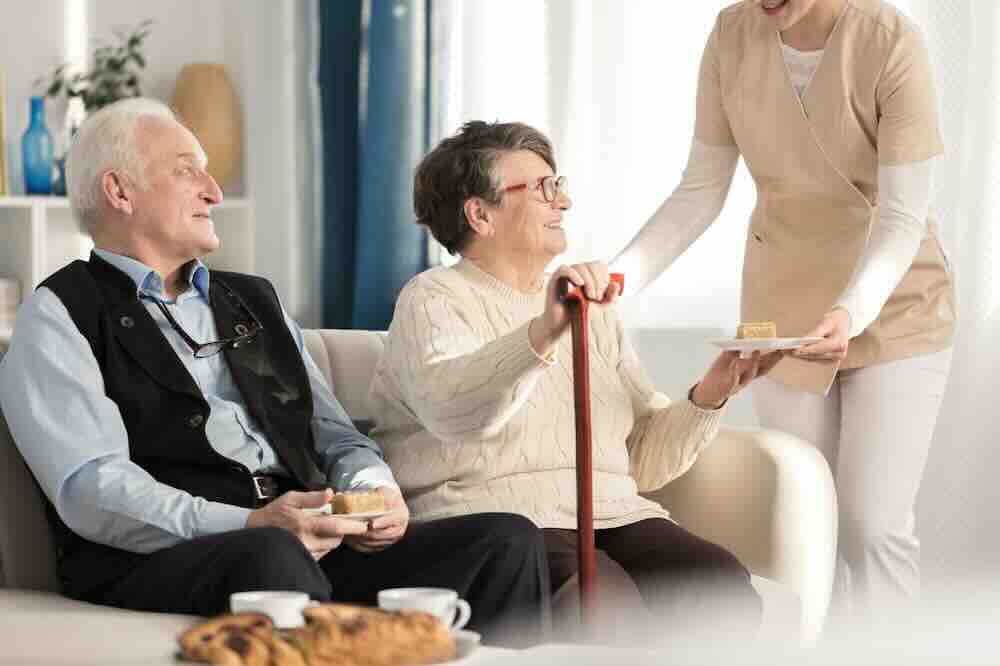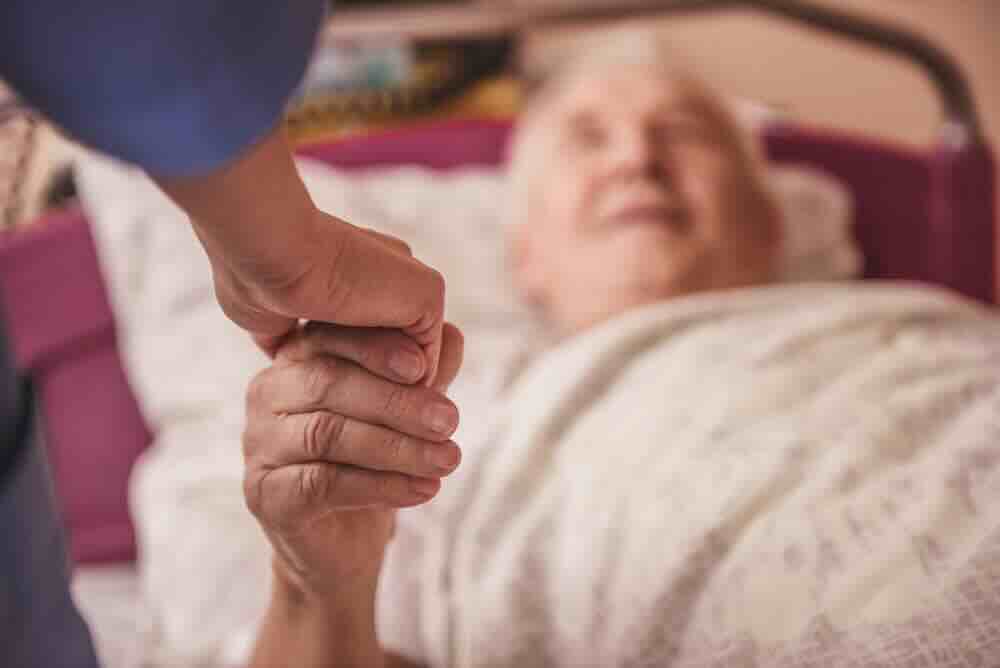Caring for a family member facing a life-limiting illness can feel overwhelming. And as a family in home hospice caregiver, we want you to know that we see you. We recognize the strength it takes to care for a loved one, and we celebrate the impact you’re making in their life. Caregiving can be a lonely road, but you don’t have to walk that path alone. As hospice providers, our team is here to support, empower, and ease the stress of caregiving.
In this blog post, we’d like to highlight family caregivers and share how a quality hospice partner can make all the difference during this journey.

Supporting the Unsung Heroes: Family Caregivers
Family caregivers play a huge role in enhancing the quality of life for their loved ones. Your love and dedication have a lasting, meaningful impact. And as your hospice support team, we celebrate the invaluable service you provide.
- Your role is vital to maintaining a nurturing and stable environment for your loved one.
- Your observations and insights play a big role as we work together to tailor a patient’s care plan.
- Your efforts in managing daily tasks (from scheduling appointments to keeping track of medications) make every day a bit easier for your loved one.
And even though we don’t offer in-home hospice training, we are committed to supporting family caregivers every step of the way.
A Heart-Centered Approach to Care

When you’re caring for a loved one, it’s important to have a team by your side. Here at Envision Hospice, your care team is more than just a group of medical professionals. Depending on a patient’s needs, your team includes a registered nurse, home health aides, a medical social worker, spiritual care coordinator, and volunteers. We understand the complexities of caring for an ailing loved one and come alongside you for support and professional guidance. Here are some ways we support a family in home hospice caregiver:
- Expert Medical Care. Whether care is delivered at home or another chosen setting (like a nursing home or an assisted living facility), our team adapts our approach to meet each patient’s unique needs. We provide specialized care in managing a patient’s pain and symptoms to ensure comfort and dignity throughout each day. And as their condition changes, the medical team works with you to make sure the patient’s needs are met.
- Integrative Therapies. To reduce a patient’s anxiety and pain and aid relaxation, we also offer integrative therapies like aromatherapy and massage therapy.
- Emotional and Spiritual Support. Medical support is very important, but patients and families also need emotional support while they navigate the hospice journey. A hospice team creates space for you to make memories together, have important conversations, and make sure a patient’s wishes are understood and respected. A spiritual care coordinator or volunteer can offer support, comfort, and a listening ear.
- Compassionate Guidance and Information. When your loved one is facing a life-limiting illness, it’s helpful to have realistic expectations. Our team helps you (as an in home hospice caregiver) understand the progression of symptoms, know what to expect during the hospice journey, and can assist with end-of-life planning. When a patient’s time in hospice comes to an end, we also connect you with bereavement support.
As your hospice care team, we’re here to answer any questions and provide reassurance. No concern is ever too small.

Navigating the Hospice Journey
As a caregiver, the hospice process can feel overwhelming. Remember: Caregivers need support as well! Here are some ways that you can get your bearings and
- Start With Open Communication
Establish honest conversations with your healthcare team. Ask about care options and share your concerns to ensure that the care plan remains flexible and patient-centered. - Create a Comforting Environment
Personalize your loved one’s care space with cherished items, photos, or music that bring up positive memories. - Seek Emotional and Spiritual Nourishment
Engage in activities that foster peace and meaning — whether it’s meditation, prayer, or simply taking a quiet walk in nature. - Use Available Resources
You aren’t alone. There are many resources available to you as a family in home hospice caregiver, from community support and counseling services to caregiver support networks. We can help connect you with the resources you need.
Celebrating Life and Connection

At Envision Hospice, we celebrate you as a caregiver.
We know that every moment spent caring for your loved one makes a difference. Remember: You’re not alone. As hospice care providers, we’re here to walk beside you with medical expertise, compassion, and support during this challenging time. When you’re ready, please reach out. We’re here for you every step of the way.
Are you caring for a loved one facing a life-limiting illness? Contact Envision Hospice today to get compassionate support.
FAQ for Family Caregivers
1. How do I know if it’s time to consider hospice for my loved one?
Any time the focus of care shifts from curative treatment to quality-of-life care, it might be time to get information about hospice. Hospice care is designed for patients facing an illness with a life expectancy of six months or less. Often, a doctor or medical professional makes the recommendation. For more information about when to consider hospice, check out this blog. Whether a doctor has given a referral or you’re researching options, it’s never too early to start getting the information you need.
2. How can caregivers care for their own well-being while supporting a loved one?
When you’re a family in home hospice caregiver, it’s very important to take care of your own needs, too. Support is crucial — whether that’s hospice respite care services, sharing responsibilities with friends or family members, or connecting with other caregivers in support groups. Having a hospice team by your side can make all the difference.
3. How do I know if I’m experiencing caregiver stress (caregiver burnout)?
When you’re a caregiver to an aging loved one, it’s very common for stress to start piling up. When the demands of caregiving begin causing you exhaustion, mental health struggles, frustration, or feelings of helplessness, you might be experiencing caregiver stress. In this blog, we have a brief quiz to help you recognize the signs of caregiver burnout. It’s very important to get the support you need.

